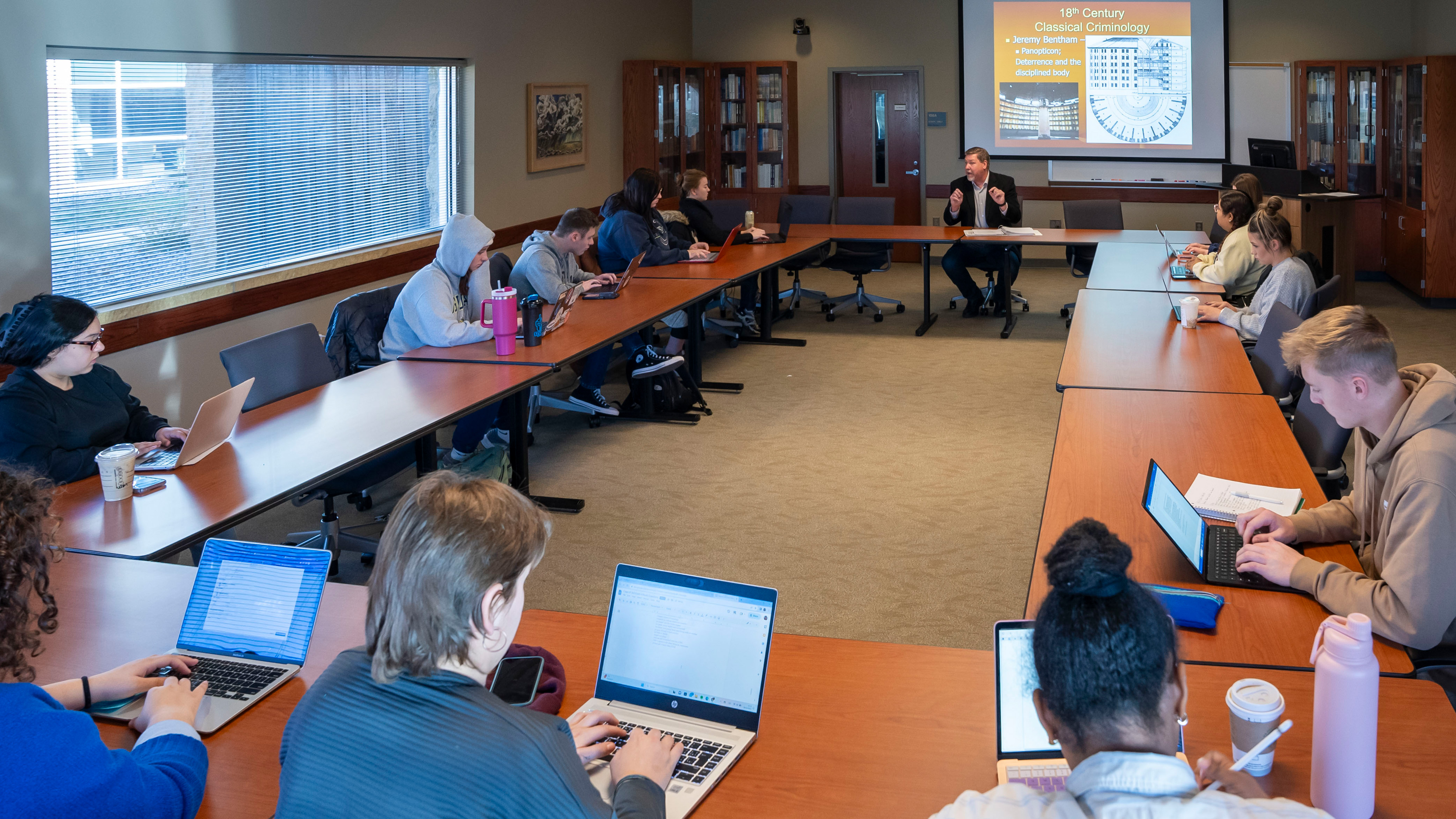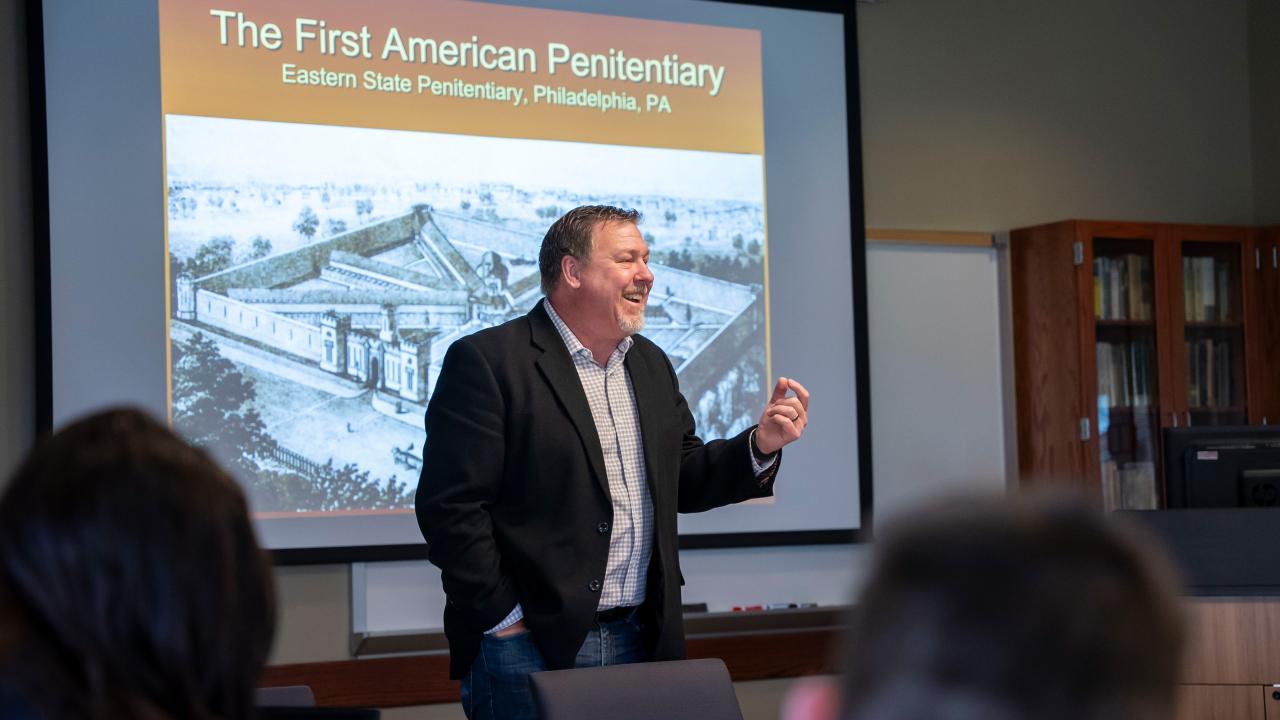In the fall, Augustana University brought back its criminal justice major after nearly 35 years — adding to the list of interdisciplinary academic programs being developed as part of Augustana’s strategic plan Viking Bold: The Journey to 2030.
“We created a criminal justice program where we're building in core courses that have a critical edge to them — courses like Criminological Theory, Policing & Society, Criminal Justice Procedures & Systems, as well as some creative electives,” said Dr. William Swart, professor of sociology and criminal justice program coordinator.

Augustana’s first criminal justice program was a joint venture with Sioux Falls College (now the University of Sioux Falls). The joint program began in 1969 with funds from the Law Enforcement Administration Program (LEAP) and Law Enforcement Education Program (LEEP), according to a 1987 edition of The Augustana Mirror.
Eventually, the joint criminal justice program dissolved, and Augustana transitioned to a minor in sociology — criminology & deviance, which is still an option for students.
AU’s reimagined major consists of seven criminal justice courses, as well as courses in sociology, criminal law and statistics.
“We want to attract students who are interested in working in criminal justice fields, but also thinking broadly about the implications of the criminal justice system,” Swart said.
Swart said he uses the word “critical” to describe the program because of its analytical approach to criminal justice.
“If I have students going into law enforcement, I want them to take a dive into the school-to-prison pipeline. I want them to understand the role of police unions in both protecting police officers, but also propagating police violence,” said Swart. “This is the kind of critical perspective we want to consider as part of this major.”
Amelia Jibben ‘25, a Sioux Falls native, was one of the first students to add criminal justice as a major.
“I've always been interested in crime fighting, but my interest in the major did not pique until I took Sociology 110 in which we watched a documentary about prisons,” said Jibben, who is also majoring in anthropology. “That class changed my perspective on the criminal justice system and made me so much more interested in its potential. My interests in the criminal justice system lie within federal policies and organizations, the prison systems and tribal police, however, all my classes bring in something new and compelling.”
After touring the South Dakota State Penitentiary in the fall with Stacy Sanders, instructor of sociology and criminal justice, Jibben’s interest in the prison systems was further piqued, which led her to apply for a summer internship with the penitentiary.
Swart said continued opportunities for community engagement, particularly in the upper-level criminal justice courses, will be provided. Faculty will also work with students to tailor the major to their interests and future plans.
“If a student wants to go into probation, I'm going to say, ‘I think you need an internship in a probation office to get that experience coupled with your criminal justice coursework,’” said Swart. “If a student's interested in going on to grad school or wants to study criminological theory or teach a criminal justice program, that may mean internships are not the right thing — maybe it's doing an independent research project.”
In the past, Augustana students have interned with organizations like the Minnehaha County Regional Juvenile Detention Center, 2nd Circuit Probation Services and Sequel Transition Academy.
For students interested in criminal justice, Swart said the program pairs nicely with majors in government & international affairs, sociology, anthropology, as well as those on the pre-law track.
“This program is important to students because it takes a deeper dive into the criminal justice system than a normal criminal justice major would. What are we doing right in criminal justice? What are the areas that need improvement? What are innovative initiatives that are working really well? Where are the pitfalls and trapdoors of past practices that we could bring new ideas to?” Swart said. “That's going to help students go into criminal justice work with their eyes open.”
To learn more about the criminal justice major, visit augie.edu/CJ.

